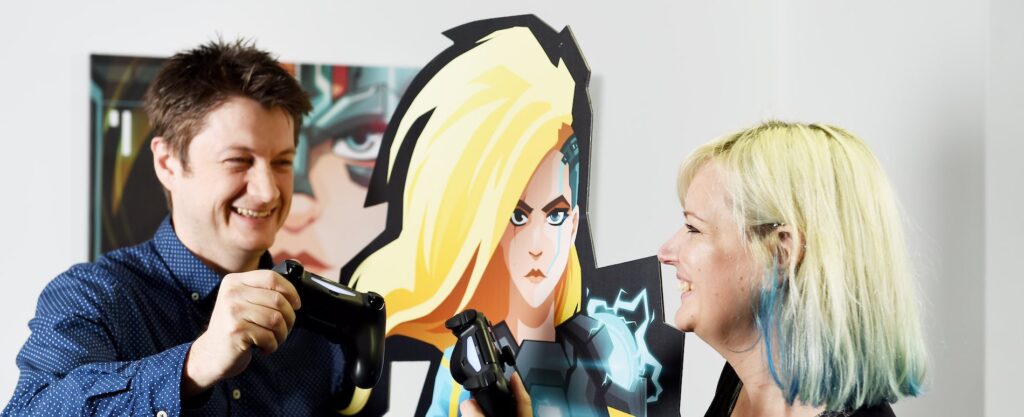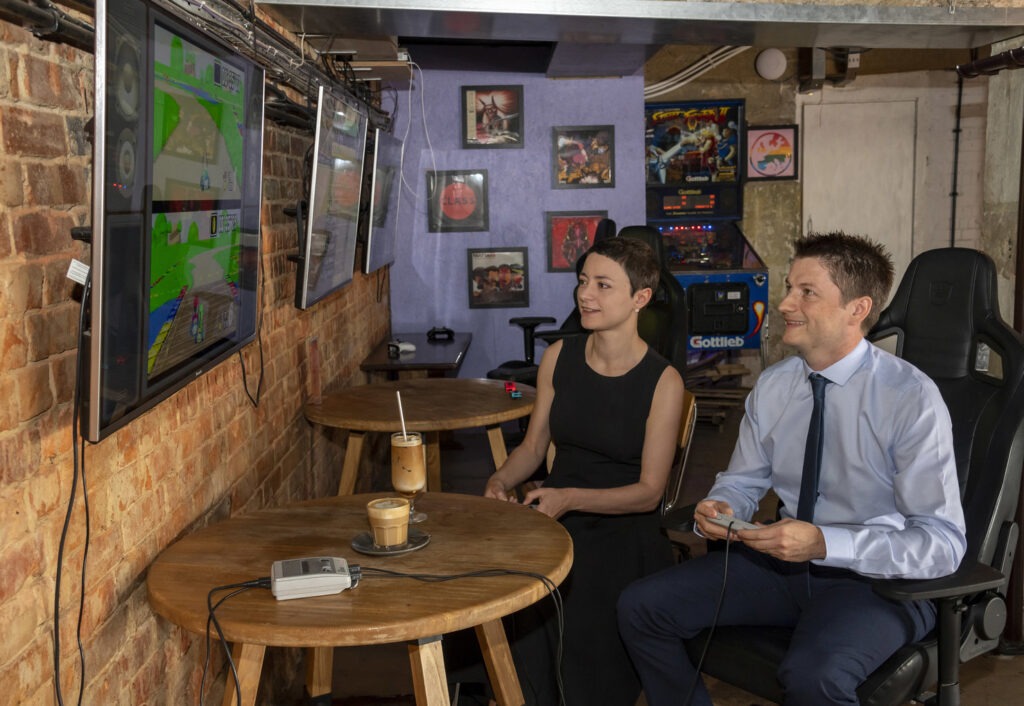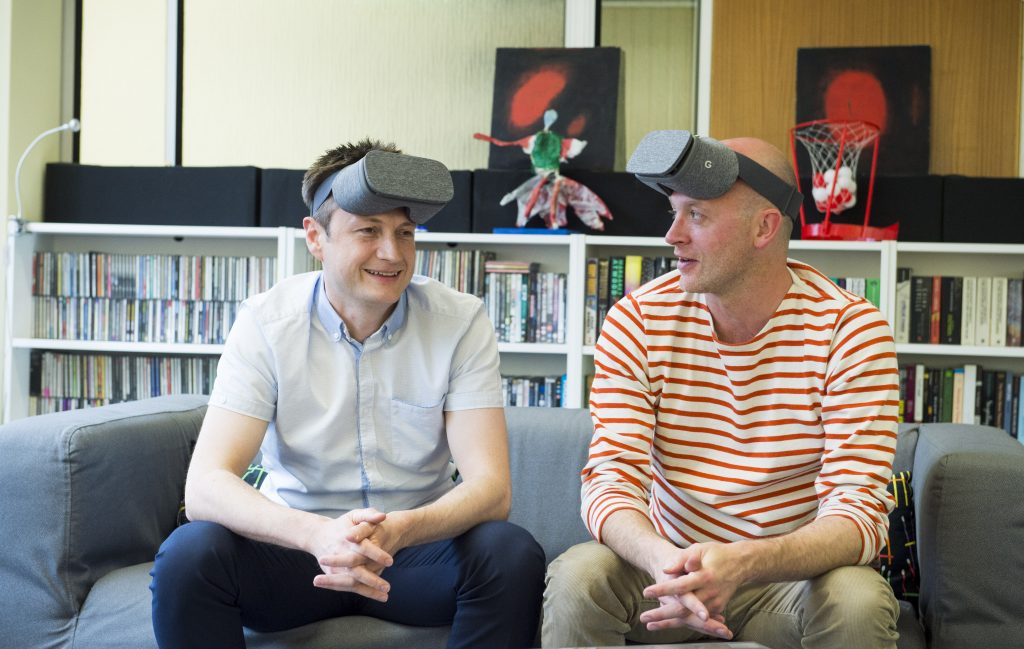
What aspiring games designer wouldn’t want to start up their own studio?
From The Fullbright Company to Mobius, indie developers have been garnering a lot of attention as of late and will continue to do so as more and more studios pop up.
By getting ahead and building a strong launchpad for your studio, there’s no reason why you can’t make it big. Loving video games is one thing, but getting your head around the business aspects of starting a studio can be a bit daunting. You don’t want to go in unprepared and make mistakes others may have done before.
1. Starting up costs more than you think
There are a fair few costs to consider before you even start making your first game. Staffing up and creating your base team will involve running payroll and setting salaries – you won’t be able to run a studio all by yourself.
Secondly, you’re going to need the right equipment to make your games with. If you go for the cheaper options you might regret it. Instead, look at your development kit as an investment in your studio’s future.
You have to spend money to make money when it comes to your studio startup, and while it can be very costly there are support schemes and grants out there for aspiring studios.
Speaking on start up costs, Dan Da Rocha, co-founder of Jaw Drop Games, said: “Whilst we started off as a micro indie studio and have now scaled to a Double-A size, we were generally always aware of the base costs of setting up a studio.
“However, there were usually hidden costs we would find along the way that we didn’t expect would pop up. Having contingency funds in place can combat this.”
The UK Games Talent and Finance CIC looks to support the UK’s gaming industry and helps fund studios in their early stages without taking a share of any capital in return. Running both Tranzfuser and the UK Games Fund, the non-profit supports a wide range of developers, from graduates to established SMEs.
2. Business first, game second
Before you get ahead of yourself, you need to realise that the business aspects of your studio will have to come way before the inception of your first game.
Just like any business, your indie studio will need to go through the proper processes to develop a business plan. Designing the box art can come later.
By setting a strong foundation for your studio’s future, you are taking steps towards reaching maximum profitability.
Sitting down with your accountant and discussing your business plans is the best place to start. Make budget forecasts and growth expectations and include them in your plan. This will be useful if the time comes to approach someone about a loan or a grant.
Unfortunately, the indie games industry is a tough business, and a lot of games fail. A solid plan will make it more likely you will succeed – and if you don’t, you’ll have planned accordingly for that too.
Explore your target market, really delve into the demographic you want to aim your games at and how you will sell them to your audience.
Explain how your indie studio and games are unique and what they will offer gamers that no other studio can. Sell yourself, not just your games.
3. You can get video games tax relief
You read that correctly – you can claim tax relief from the Government for your indie studio. This isn’t obvious to most new startups, but your company can look into claiming video games tax relief (VGTR) if the game is certified as British and is intended for supply to the general public.
Your game needs to be certified by passing a cultural test by the British Film Institute (BFI). The organisation manages certification and qualification on behalf of the Department for Digital, Culture, Media and Sport.
The test itself uses a points system, so for your game to be certified as British you’ll need to get 16 out of 31 points in the cultural tests.
Da Rocha added: “We’ve used this [VGTR] on multiple game projects since 2015 and highly recommend it to game studios as it brings a cash windfall through, which can be reinvested into further development.”
As a studio, you can claim additional deductions to reduce your profits or to increase a loss. This will mean the reduction of any Corporation Tax you are required to pay.
If your company makes a loss, some or all of this loss can be surrendered for a payable tax credit at a rate of 25%. The additional deduction will be the lower of either 80% of the total core expenditure, or the amount of core expenditure on goods and services that are provided from the UK and EEA.
For more information on claiming VGTR visit the Government website, or talk to us.
4. The structure you choose now will matter when you sell
Even though you’re just starting out on building your indie studio, you need to look ahead and plan a careful structure for your company.
You might have heard a few success stories of indies being bought out by bigger developers – last September, for example, tech giant Sony decided to buy out the small Liverpool-based studio Firesprite after the two had worked on projects together in the past.
Tamara Alliot, CEO of Nerial, said: “We’re now part of a much larger company, but we know each other well and have changed our reporting and processes together. We now have a good level of stability and support from a larger team.”
Tamara added the company’s accountants “have been invaluable to us all the way through our acquisition, and for ongoing reports and accounts.”
Even though this move may be some time off, by planning ahead you’ll ensure any acquisition will go smoothly and work to your benefit.
Make sure you know who owns the IP (preferably yourself) before signing anything. The last thing you want is to be taken over by a larger company and see your hard work being disregarded or losing its magic. It’s also important to understand whether you personally own the IP, or whether it’s owned by your company – this will make a difference to the process of the sale.
Sometimes, you might want to consider whether you really want to be bought out by a larger company. Indie studios have been known to stop working on passion projects due to pressure from their buyer to focus on drawing in revenue instead.
In 2018, Campo Santo – the developer of indie gem Firewatch – was bought out by Valve. A year later, the next game Campo Santo had been working on was put on hold and the team were said to be working on Half Life: Alyx and a free-to-play game loaded with microtransactions. Sometimes, the grass isn’t always greener.
What should you do next?
At Plus Accounting, we have a proven track record of working with successful and reputable indie studios. Our team is here to help you make the right decisions and put measures in place to give your studio the best start it can have.
Contact our Video Games expert Luke Thomas or follow him on Twitter @VideoGamesTax.



